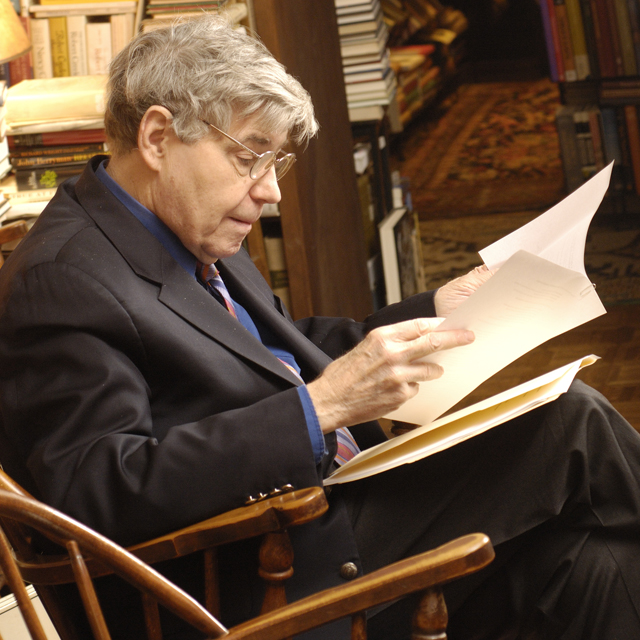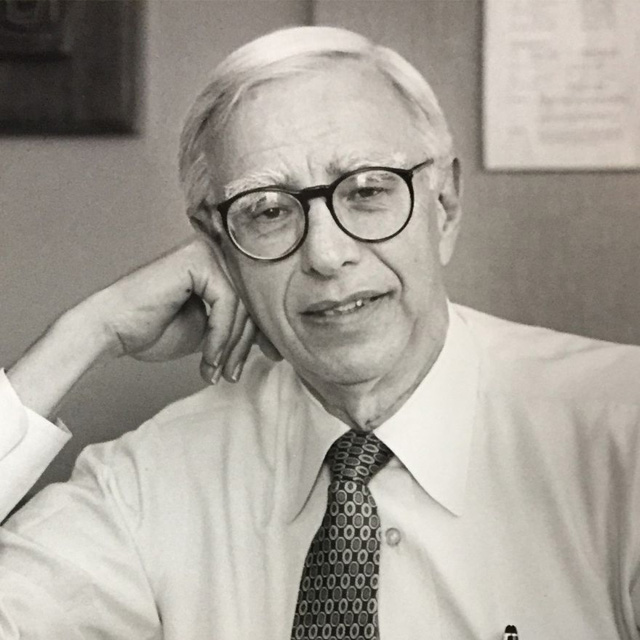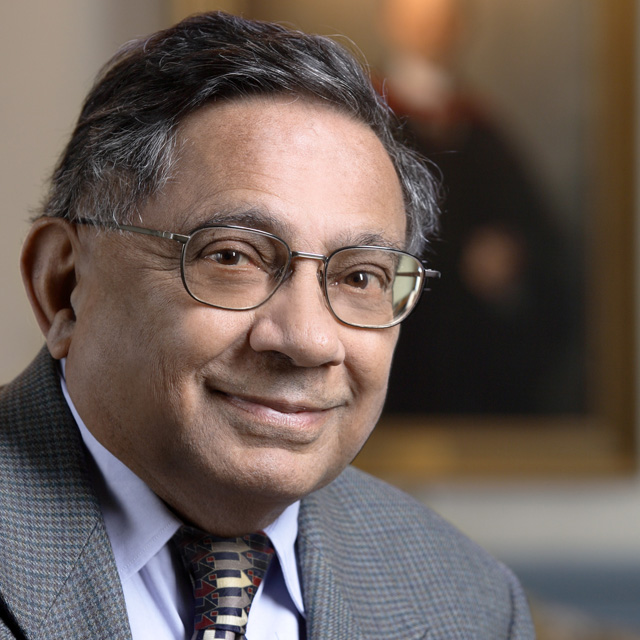School of Medicine
1941
Myrick W. Pullen Jr., of Orofino, Idaho, a psychiatrist who served as director of state’s mental health programs, died on March 29, 2019. He was 103. A World War II veteran of the Pacific Theater, he made eight D-Day landings — four in New Guinea and four in the Philippines. After the war, he completed his postgraduate education in psychiatry and moved to Idaho. During his tenure as head of the state’s mental health programs, he raised Idaho from a 47th-place ranking among the nation’s statewide psychiatric services to third place. He also served as president of the Intermountain Psychiatric Association.
1946
Lewis W. Bluemle Jr., of Bryn Mawr, Pennsylvania, who designed and developed the first successful artificial kidney and dialysis unit in the Philadelphia area and served as the second president of Thomas Jefferson University, died on Aug. 13, 2019. He was 98. He also designed and directed the University of Pennsylvania’s first National Institutes of Health-supported clinical research center, served as associate dean of UPenn’s medical school, and was president of both the Upstate Medical Center of the State University of New York in Syracuse and the University of Oregon’s Health Science Center in Portland.
James K.V. “Pat” Willson, of Mobile, Alabama, an influential, award-winning radiologist and donor to the radiology department at Johns Hopkins, died on July 28, 2019. He was 96. At the Mobile Infirmary, he served on the radiology staff from 1962 to 1992 and was chair of the department from 1980 to 1986. During his 30-year career in Mobile, Willson earned four patents on instruments he devised for use in angiography and the diagnosis of lung disease.
1948
Francis H. “Hank” Watt, of Tallahassee, Florida, a general surgeon who established the first ICU at Tallahassee Memorial Regional Hospital — where he often accepted payment in corn, beans and other produce — died on Aug. 8, 2019. He was 96. Watt was part of the surgery team that Alfred Blalock ’22 established in 1947–48 to perform the blue baby operation Blalock had introduced in 1944, creating the field of cardiac surgery. While maintaining his private practice, Watt spent decades participating in medical missions to Mexico, Haiti, Kenya, the Democratic Republic of Congo, Malawi and Indonesia.
1951
B. Noland Carter II, of Richmond, Virginia, a vascular surgeon who was president of the Southern Society of Clinical Surgeons and the Virginia Surgical Society, died on Aug. 25, 2018. He was 82. He helped establish the vascular clinic at Virginia Commonwealth University, where he practiced and taught for years as an associate professor.
1954
John A. “Lex” Cavins, of Indianapolis, whose medical research later enabled the military to preserve blood for prolonged periods, died on July 27, 2019. He was 90. Cavins also worked closely on human bone marrow transplantation with E. Donnall Thomas (1920–2012), who in 1990 shared the Nobel Prize for Physiology or Medicine for his pioneering efforts in cell and organ transplantation.
Stanley L. Schrier, of Palo Alto, California, chief of the Division of Hematology at Stanford who trained generations of physicians and scientists during 27 years as its head, died on Aug. 16, 2019. He was 90. A former president of the American Society of Hematology, he continued to treat patients and conduct research until two months before his death.
1955
Charles T. Ambrose, of Lexington, Kentucky, whose library of 400 medical texts from the 16th and 17th centuries formed the basis for his numerous publications and presentations on medical history, died on June 29, 2019. He was 89. Ambrose was a professor of microbiology, immunology and molecular genetics at the University of Kentucky College of Medicine.
1957
Albert S. Mildvan, of Baltimore, former director of the Johns Hopkins M.D./Ph.D. program, died on Oct. 24, 2019. He was 87. A professor of biological chemistry and chemistry, Mildvan’s scientific contributions spanned many fields — from mathematical theories of aging, spectroscopy and enzyme kinetics to clinical medicine. He was best known for the ingenuity with which he pressed the technique of nuclear magnetic resonance into the service of studying the basic structure and activity of enzymes.
Francis D. “Frank” Milligan, of Baltimore, who initiated the use of fiber-optic endoscopes to examine pancreatic and common bile ducts at Johns Hopkins in the early 1970s — and also maintained a private gastroenterology practice for nearly a half-century — died on Aug. 20, 2019, of complications from a fall. He was 87. In 1976, while retaining his Johns Hopkins faculty appointment, he established a private Baltimore practice. He returned to Johns Hopkins in 2003, retiring in 2011. He also was a much-admired and valued volunteer in the Alan Mason Chesney Medical Archives.
1959
Robert F. Ward, of Baltimore, a psychiatrist who specialized in treating families, died of vascular disease on Sept. 28, 2019. He was 85. Following his postdoctoral training — which included being chief resident in psychiatry at the old Baltimore City Hospitals, now Johns Hopkins Bayview Medical Center — he joined the medical school faculty. He directed the inpatient psychiatric clinic and was on the staff of the sexual behavior clinic.
1960
Walter E. Afield, of Tampa, Florida, who helped create Johns Hopkins’ mental health counselor program, the first in the nation, and worked to combine psychiatry and pediatrics into the single discipline of child psychiatry, died on Oct. 12, 2019. He was 83. Afield’s collaboration with psychiatry director Joel Elkes (1913–2015) to establish the mental health counselor program was controversial at the time but became a widely accepted way of training enough therapists to meet patient demand, given the shortage of psychiatrists. In 1970, he became the founding chair of the department of psychiatry at the University of South Florida’s medical school.
L. Scott, of Tulsa, Oklahoma, an endocrinologist who spent nearly 50 years serving diabetes patients at local hospitals, as well as teaching at the University of Oklahoma College of Medicine in Tulsa, died on July 20, 2019. He was 85. Ultimately, Scott focused his practice at the city’s Saint Francis Hospital, where he became medical director of its Diabetes Center in 1986.
Arthur Y. Sprague, of Manoa, Hawaii, an anesthesiologist who specialized in the challenges of providing anesthesia during open heart and other cardiovascular operations, died on June 13, 2019. He was 88. He also served several terms as director of the ICU at Honolulu’s Queen’s Medical Center and chair of its anesthesia department.
1966
Harrold T. Elberfeld, of Sparks, Maryland, a retired obstetrician-gynecologist who was an assistant professor of ob/gyn at Johns Hopkins for more than four decades, died on Aug. 3, 2019. He was 79. From 1974 to 2001, he was associate director of the department of obstetrics and gynecology at Baltimore’s Franklin Square Medical Center. He also was director of Franklin Square’s ambulatory ob/gyn services from 1991 to 2001.
David Lee Page, of Nashville, Tennessee, a world-renowned expert on breast cancer pathology, died on Oct. 17, 2019. He was 78. Following postdoctoral training at Vanderbilt and Massachusetts General Hospital, as well as two years as a researcher at the National Institutes of Health and a year as chief resident in pathology at Johns Hopkins, Page joined the anatomic pathology department at Vanderbilt in 1973.
1999
Sreenivas “Sreeni” Devidas, of Glenelg, Maryland, who collaborated with Nobel Prize winner Peter Agre ’74 on his landmark 1997 paper on aquaporins and ion conductance, died on July 9, 2019. He was 51. A native of India, he received his Ph.D. in biomedical engineering from the school of medicine. He became a global leader in biotechnology and its application to health care.
2000
Mark J. Schoenebaum, of New York City, who was ranked Wall Street’s No. 1 biotechnology analyst for 12 consecutive years by Institutional Investor magazine, died on Aug. 24, 2019. He was 46.
Former Faculty, Fellows and House Staff
John R. Tomec (fellow, orthopaedic surgery, 1962–1965), of Westlake Village, California, a sports medicine specialist who served for 20 years as an orthopaedic consultant and medical coordinator for the Dallas Cowboys training camp, died on July 1, 2019. He was 88.
Thomas F. Ferris (HS, internal medicine, 1957), of Wayzata, Minnesota, former chair of the Department of Internal Medicine at the University of Minnesota medical school, died on July 19, 2019. He was 88. After serving as an assistant professor of medicine at Yale and as a fellow and visiting researcher at Oxford University in England, he became the founding director of the Division of Renal Diseases at Ohio State University’s College of Medicine in 1967. He became head of the Department of Internal Medicine at Minnesota in 1978 and remained its chair until retiring in 1995.
Bruce E. Northrup (HS; fellow, neurological surgery, 1964–73), of Newtown Square, Pennsylvania, a professor neurosurgery from 1978 to 2001 at Thomas Jefferson University Hospital, where he specialized in spinal ailments, died on July 13, 2019. He was 80.
H. Verdain Barnes (HS; fellow; faculty, medicine, 1968–75), of Dayton, Ohio, who held numerous academic appointments during a long career and was proclaimed a “Master of Medicine” by the American College of Physicians for his teaching and mentoring skills, died on June 24, 2019. He was 83.
John Christopher Whelton (HS; fellow, medicine, 1968–72), of West Palm Beach, Florida, who maintained a private rheumatology practice from for 45 years and became a benefactor of rheumatology training at Johns Hopkins, died on Oct. 25, 2019. He was 75.
Jonathan Keroes (fellow, cardiology, 1970), of San Francisco, who launched a new career as a computer scientist after practicing cardiology for 30 years, died on July 6, 2019, of Lewy body dementia. He was 79.
Douglas B. Murphy (faculty, cell biology, 1978–2006), of Baltimore, who helped establish the medical school’s microscopy facility, died on Sept. 8, 2019, from complications of brain cancer. He was 74.
Michael G. Burke (faculty, pediatrics, 1987–2018), of Clarksville, Maryland, who was chair of pediatrics and a pediatric hospitalist at Saint Agnes Hospital in Baltimore, died on July 10, 2019. He was 62.



